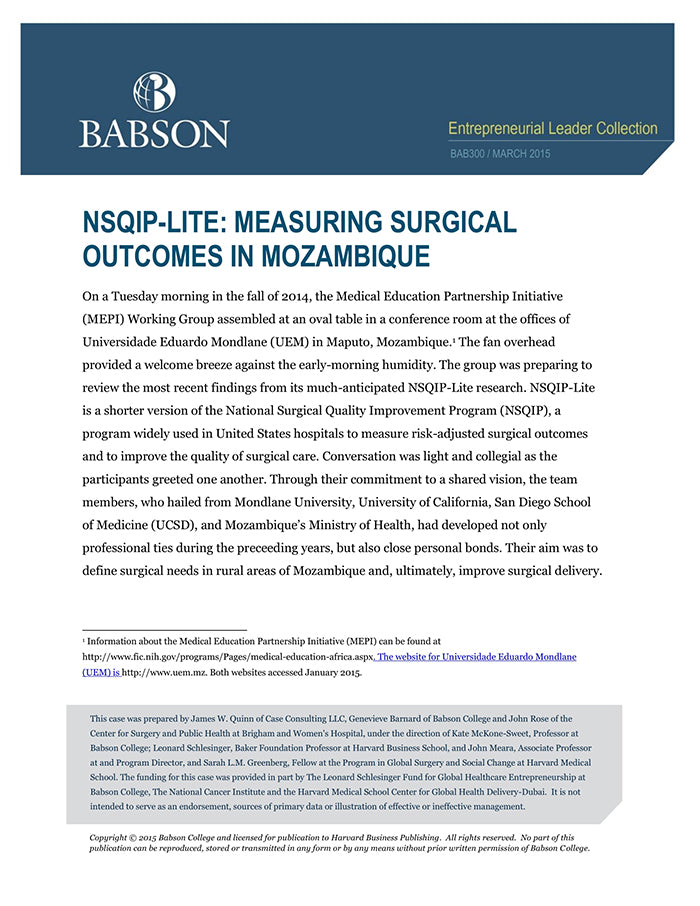NQISP-Lite: Measuring Surgical Outcomes in Mozambique
受取状況を読み込めませんでした
Because improved surgical care leads to better health outcomes, multiple groups of surgeons have developed metrics and tools for monitoring the availability and quality of surgical care. However, a critical barrier to monitoring quality in surgical care is the need to include a risk-stratification model to account for differences in case mix and patient comorbidities between hospitals. Researchers in developed countries use protocols for risk-stratification in surgical care, but staffing and resource issues have prevented researchers from using these protocols in low-income countries. To improve the quality of surgical care in Mozambique, a partnership was developed between the Universidade Eduardo Mondlane Medical School and the University of California, San Diego School of Medicine, with guidance and support from the Mozambican Ministry of Health. The immediate priority of the research team was to define the epidemiology of surgical conditions and evaluate local capacity to meet that need at three pilot hospitals across the country. This case explores the process of implementing a risk-stratification model for low- income countries and challenges students to critique the model and set direction for future work.
【書誌情報】
ページ数:27ページ
サイズ:A4
商品番号:HBSP-BAB300
発行日:2015/3/1
登録日:2015/4/3


